
NACUBO 2023 Annual Meeting
Recorded On: 07/18/2023
- Registration Closed

NACUBO is excited to host the NACUBO 2023 Annual Meeting in Orlando. We look forward to connecting with colleagues to reflect on our roles in transforming higher education to meet tomorrow’s demands. NACUBO’s annual meeting will gather almost 2,000 campus and sector leaders who are dedicated to the success of their institutions and students. Together with our members, NACUBO advocates for smart and sensible higher education policies.
We have created an annual meeting focused on transformation, leadership, and advocacy—tools we all need in our roles to be effective in delivering on our shared higher education mission. We hope you will join us online.
July 16, 2023
Main Stage: How to Be a Non-Obvious Thinker (and See What Others Miss)
Rohit Bhargava is the bestselling author of nine books on marketing, trends, innovation, and how to create a more diverse and inclusive world. He is on a mission to inspire more non-obvious thinking in the world and to help you learn to see the opportunities others don’t, be more resilient, and lead the future. He previously spent 15 years leading brand strategy and teaches marketing and storytelling as an adjunct professor.
Want to download the slides? Please visit Non-Obvious Resources for NACUBO.
Higher Ed Workforce Challenges: Opportunity, Chaos, or Something in Between?
Employee recruitment and retention continue to be tremendous challenges in a very competitive job market, and for some institutions, essential student services and core campus operations are in jeopardy. This session will highlight current and emerging U.S. and higher education workforce challenges and offer examples of ways higher ed leaders can recruit, retain, and engage the talent needed now and into the future. Explore strategies chief business officers and chief human resource officers are using to recruit and retain employees.
Learning Objectives
- Outline national and higher education recruitment and retention data
- Discuss recruitment and retention strategies and solutions being used by both higher education and private sector organizations
- Describe the importance of the chief business officer and chief human resources officer relationship and identify ways to strengthen that partnership
Speakers
- Lynne Adams, chief human resources officer, University of Maryland, Baltimore County
- Kathy Dettloff, vice president for administration and finance, University of Maryland, Baltimore County
- Ed Kania, vice president for business and finance and treasurer, Rollins College
- David Zajchowski, director, human resources, Rollins College
- Andy Brantley, president and CEO, College and University Professional Association for Human Resources (CUPA-HR)
Strategically Financing Equitable Student Outcomes: Trends, Tools, and Resources
In 2021, NACUBO was awarded $3.8 million in grants to create tools and resources that will produce financially sustainable and equitable student outcomes. In this session, panelists from participating institutions will share insights into how they are leveraging the tools and resources they helped to design, and how those tools and resources are linked to the improved student outcomes they expect to achieve. Panelists will discuss their experiences related to one of the following areas of focus: data to inform decisions; financial resource optimization; and student-centered planning, processes, and budgeting.
Learning Objectives
- Discuss approaches that peers are using to strengthen the role of the business office to strategically support student outcomes
- Identify opportunities to generate and support data analysis, data usage, and institution-wide awareness of budget outcomes and impacts
- List inputs and outputs that support planning, budgeting, prioritization, and allocation
- Describe mechanisms to consider program efficacy, performance, and the identification of equity gaps
Speakers
- Christopher Calvert, vice president for finance, chief financial officer, Cincinnati State Technical and Community College
- Leslie Jamison, chief financial officer, Atlantic Cape Community College
- Amber Randolph, senior vice chancellor for administration, economic development and chief financial officer, Rutgers University – Newark
- Scott Stenmark, vice president for finance and administration, chief financial officer, North Park University
- Kelli Rainey, senior director of grants management, NACUBO
Using Technology to Navigate Higher Education’s Top Business Issues
During the pandemic, institutions were able to quickly leverage technology to adapt to new conditions and challenges. How can CBOs and CIOs use the same agility and innovation to address higher education’s business challenges? EDUCAUSE’s Top 10 IT Issues revealed themes that may help leaders see opportunities for leveraging technology: leading with wisdom, the ultra-intelligent institution, and everything is anywhere. Panelists will share how CBOs and CIOs are partnering to use technology to navigate NACUBO’s Top 5 Business Issues: workforce, student needs, technology infrastructure, economic climate, and resource constraints.
Learning Objectives
- Recognize opportunities for using technology to address business challenges
- Develop strategies for leveraging technology to support institutional priorities
- Evaluate digital and technology strategies and approaches
Speakers
- Sharon Blanton, vice president for operations, The College of New Jersey
- Dwayne Pinkney, executive vice president for finance and administration, Indiana University
- Jack Suess, vice president of IT, University of Maryland, Baltimore County
- Cole Clark, managing director, higher education, Deloitte
Key Considerations in Developing a Remote Work Policy
Following the pursuit of increased wages, employees cited opportunities for remote work and more flexible hours as the most common reasons for seeking new employment in a 2022 survey by the College and University Professional Association for Human Resources. Shaped by an institution’s unique cultural position and strategic goals, these increasingly nuanced policies can make political, social, and economic statements. This session will discuss the framework for developing a remote policy within the continuum of external implications. Attendees will learn how to engage leadership in constructive discussions to better address internal, external, and regulatory demands.
Learning Objectives
- Illustrate the definitive statements an institution's remote work policy can make
- Examine external factors that influence your institution's remote work policy
- Lead constructive conversations with leadership regarding your institution's remote work policy
Speakers
- Robert Caret, vice president of executive search, Greenwood Asher and Associates
- Joel Levenson, assistant vice president for tax, payables and procurement, University of Central Florida
- Michael Plater, vice president and higher education practice lead, Kelly Education
- Jeremy Van Kley, higher education sales consultant, Kelly Education
July 17, 2023
Main Stage: Leadership and Risk Management: Taking Command
During his time in the military, Admiral William McRaven commanded special operations forces at every level, eventually taking charge of the U.S. Special Operations Command. As the Chancellor of the UT System, he led one of the nation’s largest and most respected systems of higher education. The author of four books, his latest is a tribute to everyday heroes—from battlefields to hospitals to college campuses.
Activating a Transformational Framework for Campus Planning Collaboration
This session will explore ways to create a framework for how leaders from facilities, business and finance, and campus planning can collaborate to move an institution from a siloed approach to an integrated model of planning. This model seeks to integrate with other key planning activities occurring on the campus that, when activated and realized, will transform how an institution reaches its potential.
Learning Objectives
- Use the framework's guidelines to stimulate engaged and collaborative discussion to prioritize campus programs/facilities and decision-making
- Assess how your institution collectively manages facilities, finance, and planning actions as either a lagging response or a leading planning element
- Discuss your campus facilities infrastructure in terms of embodied debt, risk exposure, future program compatibility, and adaptability
Speakers
- Russ Hannah, chief financial officer, Arkansas State University
- Laura Hubbard, vice president for finance and administration, The University at Buffalo
- E. Lander Medlin, president and CEO, APPA-Leadership in Educational Facilities
- Mike Moss, president, Society for College and University Planning
- Pete Zuraw, vice president market strategy and development, Gordian
- Jim Hundrieser, vice president, consulting and business development, NACUBO
Operating in an Inflationary Environment
As inflation hits record levels, higher education business model challenges will be significant. Developing capital planning, opportunities for revenue enhancement and reallocation, and debt strategies are needed to address rising building costs, wages, and interest rates. This session will explore expected and potential areas of unexpected inflation; how to communicate the effects of inflation to various stakeholders, including the Board, academic units, and students; and actions that can mitigate the impact of more significant inflation going forward.
Learning Objectives
- Discuss your organization’s exposure to potential inflation
- Address unexpected inflation across your organization
- Forecast inflation across multi-year business models
Speakers
- Eric Bymaster, associate vice chancellor for finance and treasury, Vanderbilt University
- Chris Cowen, executive vice president and chief financial officer, Cornell University
- Jim Costello, managing director, J.P. Morgan Securities LLC
Moving Towards a Stronger and Sustainable Business Model at Small Colleges and Universities
Are you concerned about the current and future financial vitality of your institution? Do your board and leadership talk meaningfully about their concerns, but take little action to address those concerns? This session provides insights key administrators can use to strategically assess the strength of their institution’s business model, recognize whether they are approaching an inflection point, and consider timely alternatives or specific actions they can take to move forward with a process that will maintain or return to financial sustainability.
Learning Objectives
- Discuss key questions and actions institutional leaders should take when assessing the need, building the case, and designing the strategy for transformational change to meet financial needs to ensure institutional sustainability
- List ways to anticipate and overcome barriers institutions may experience while planning, designing and implementing a significant shift in strategy, differentiation focus and/or operation model
- Highlight specific action steps your institution can take to remain (or return to) financially sustainable
Speakers
- Rebecca Skillings, vice president for finance and administration, Oberlin College
- Art Snyder, president emeritus, Indiana Tech, senior fellow, NACUBO
- Henry Stoever, president and CEO, Association of Governing Boards of Universities and Colleges (AGB)
- Dave Capitano, higher education practice leader, Baker Tilly
- Jim Hundrieser, vice president, consulting and business development, NACUBO
Optimizing Non-Tuition Revenue and Auxiliaries within Colleges and Universities
Higher education financials will likely continue to face headwinds in the years ahead, causing institutions to dig deep and determine a path to sustainability. It is critical that CFOs and their teams understand the various non-tuition revenue streams, particularly within auxiliaries, that are available to higher education institutions and how to optimize them. What should be insourced versus outsourced? What auxiliary functions have adequate scale? Is there an opportunity to explore auxiliary functions as well as administrative areas? Is UBIT something to be avoided or positively embraced? This session will address these questions and others around the use of auxiliaries as an opportunity to deliver financial sustainability.
Learning Objectives
- Identify ways in which non-tuition revenue can support financial sustainability
- Describe the factors to successfully identify, enhance, and roll out improvements to non-tuition revenue
- Explain UBIT rules from a business and mission perspective
Speakers
- Bill Dracos, deputy chief operating officer, Georgia Tech Research Institute
- William Guerrero, vice president of finance and chief financial officer, University of Bridgeport
- Matt Unterman, practice leader and principal, Higher Education Advisory Services, Grant Thornton LLP
Data and Analytics as Tools for Institutional Resilience
While data and analytics are improving reporting and compliance, they have largely failed to provide a significant return on investment for student success, organizational change, or institutional resiliency. To remain resilient in the face of those challenges, higher education institutions need to develop analytics strategies that go far beyond current solutions that help institutions meet reporting requirements and explain problems that have already happened. Learn how Notre Dame is using analytics to build institutional resilience with modern data and analytics approaches.
Learning Objectives
- Define modern data and analytics approaches (terms, techniques, tools) your institution can apply to its key challenges
- Chart the steps of your own analytics journey using real world examples and best practices gleaned from across higher education
- Apply self-paced training materials and hands-on workshops to explore effective practices and tools in a higher education context
Speakers
- Linda Kroll, Associate Vice President for Finance, The University of Notre Dame
- Jean Vock, Senior Vice President, Business Affairs and Chief Finance Officer, University of Nevada Las Vegas
- Mark Hampton, Executive Education Advisor, Amazon Web Services
New Frontiers in Treasury Management
Higher education debt and treasury professionals must build resilient balance sheets with enough flexibility to pursue strategic initiatives—all during a time of rising interest rates and market volatility. During this session, speakers will discuss the advantages of scale and how using an internal central bank can foster budget predictability, optimize liquidity, and insulate capital plans from rising interest rates. They will also address age old questions of whether to pay off debt, private placement versus capital markets, and how to allocate capital costs across a campus to promote budget accountability and predictability.
Learning Objectives
- Articulate varying strategies to help optimize your institution's balance sheet in a time of rising interest rates and market volatility
- Demonstrate an acumen for varying debt and treasury strategies and assess if they are appropriate for your institution
- Refine your debt and treasury operation to aid investment for tomorrow while preserving strength and resiliency today
Speakers
- Wayne Magdziarz, senior vice president, chief financial officer and chief business officer, Loyola University Chicago
- Drew Smith, treasurer, University of Michigan
- Michael Osborn, vice president, senior credit officer, Moody's Investors Service
July 18, 2023
Effectively Communicating Financial Information Through Financial Statements
Hear ways to best convey your institution’s financial story. Panelists will provide observations, insights, and recommendations for effectively communicating financial information via audited financial statements for both public and private institutions. Topics will include institutional aid, accounting policies, restrictions, governing board designations, disclosures and/or MD&A, operating performance, programmatic expenses, and endowment information.
Learning Objectives
- Define allowable reporting flexibility
- Differentiate between functions and programmatic activities
- Explain how readers may digest financial information
Speakers
- Chris Leach, accounting policy analyst, NACUBO
- Sue Menditto, senior director, accounting policy, NACUBO
Using Budget Modeling to Create a Sustainable Tuition-Driven Institution
We in higher education often like to decouple student enrollment from tuition dollars. Unfortunately for small private institutions without robust endowments, the reality is that revenue is tuition driven. So how do you tie student enrollment to tuition goals to make sound financial decisions in real time? Hear how one institution was able to rework their tuition model from one based on discounts to one based on credit hour generation. The presenters will show how this model can be tied directly to student enrollment through dashboards. They will also explore common challenges facing institutions and how this modeling can help address those challenges to move toward financial stability.
Learning Objectives
- Implement credit hours as a basis for your revenue budget
- Directly tie budgets to an institution’s census numbers, growth heuristics, and key performance indicators
- Obtain the necessary data to make informed decisions on areas of budget allocations
Speakers
- Dr. Melik Peter Khoury, president and chief executive officer, Unity College
Main Stage: Present Your Finance: Talk Numbers to Me
Melissa Marshall helps technical and business professionals talk about complex ideas in ways that inspire stakeholders to act. Sharing proven strategies that she's used to help the world's top researchers and thinkers convey their work, Melissa will challenge what you've always known and thought about presenting—and share exciting new ways to transform your next presentation.
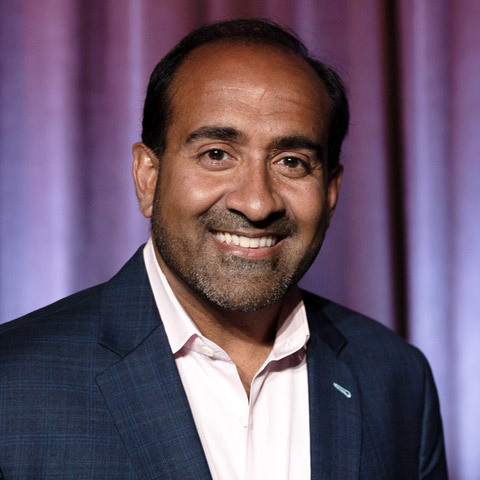
Rohit Bhargava
Non-Obvious Futurist and Bestselling Author
Main Stage Speaker
Rohit Bhargava is the bestselling author of nine books on marketing, trends, innovation, and how to create a more diverse and inclusive world. He is on a mission to inspire more non-obvious thinking in the world and to help you learn to see the opportunities others don’t, be more resilient, and lead the future. He previously spent 15 years leading brand strategy and teaches marketing and storytelling as an adjunct professor.
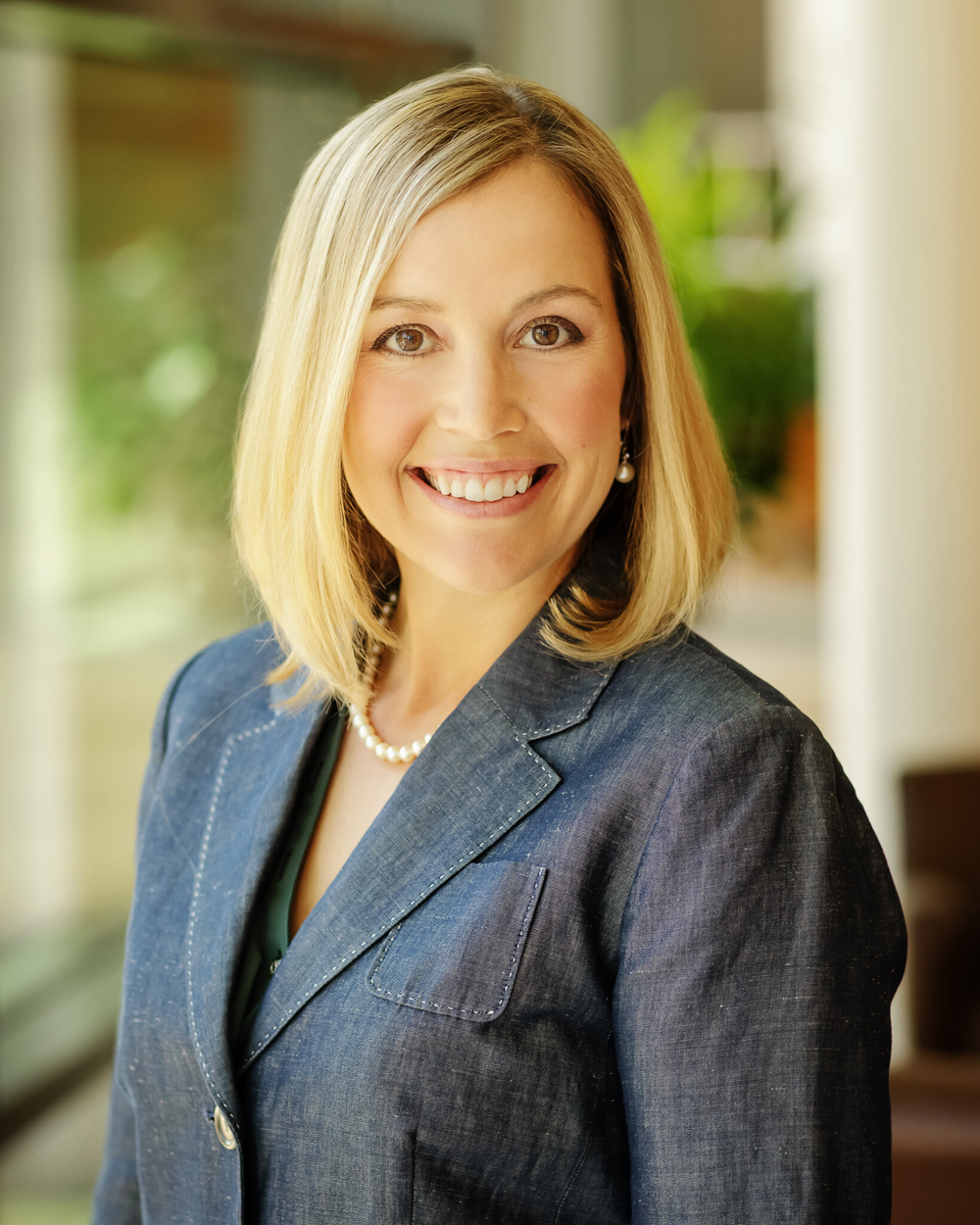
Melissa Marshall
TED Speaker and Communications Expert
Present Your Science
Melissa Marshall believes that even the best science is destined to remain undiscovered unless it’s presented in a clear and compelling way that sparks innovation and drives adoption. She’s passionate about showing often-skeptical scientists and technical professionals that they really can change how they present for the better, without changing themselves.
For the past decade, Marshall has traveled around the world to work with Fortune 100 corporations, institutions and universities, teaching the proven strategies she’s mastered through her consulting work and her 10 years as a faculty member at Penn State University. In 2019, 2020, and 2021, Microsoft recognized Marshall’s work empowering the technical community to use PowerPoint to design slides more effectively by naming her as one of Microsoft's Most Valuable Professionals (MVP).
You’ll find that Marshall practices what she preaches with her own lively and practical talks. For a sneak peek, check out her TED talk, “Talk Nerdy to Me.” It’s been watched by over 2.5 million people (and counting).
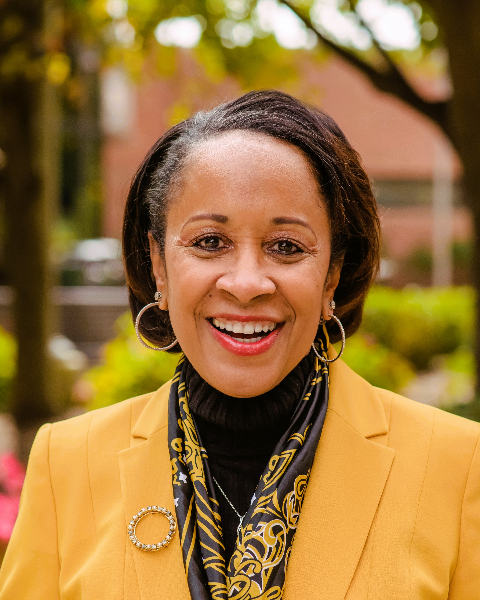
Lynne Adams, PhD
Chief Human Resources Officer
UMBC
Dr. Lynne Adams has over 35 years of experience providing innovative human resources and organizational development initiatives to higher education, business, government, and non-profit organizations. She has developed a career path based upon her passion and commitment to improving organizational commitment, strategic focus, team cohesiveness, and leadership skills within organizations. She has developed and implemented large-scale organizational development, leadership, and career development initiatives that have had a significant impact propelling organizations to maximize their skills and their talent. She has worked for manufacturing, health care, property and liability insurance, consumer marketing, and governmental organizations throughout her career.
Over the past 18 years, she has served in leadership positions in corporate, public health, finance, non-profit and higher education. Currently serving as the CHRO at UMBC. Dr. Adams completed her B.S. at Oakland University in Human Resources Development (minor in Labor Relations), M.Ed. at Wayne State University in Instructional Design and Technology, and her Ph.D. at Capella University in the school of business in General Organization & Management. A master facilitator she is certified in coaching, leadership, and team-based training curricula and several instruments. Over the past 10 years, she has served as an adjunct faculty for several College and University graduate programs focusing on organizational behavior, HR, strategy, and leadership courses. Finally, she serves on several professional and non-profit boards.
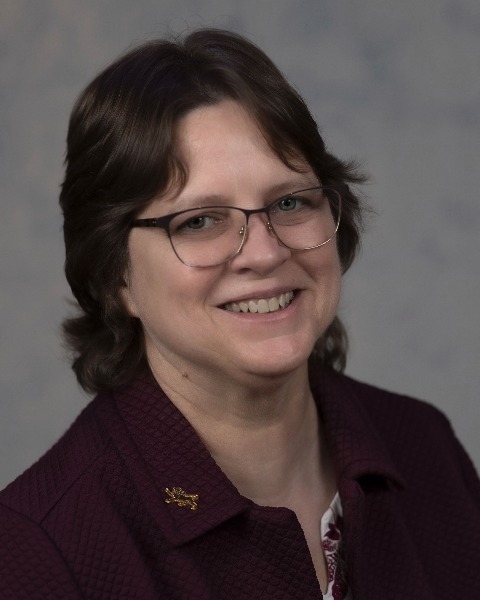
Sharon Blanton, PhD
Vice President for Operations
The College of New Jersey
Combining strong problem solving, agility, communication, and thought-leader acumen, Dr. Blanton has a significant track record of success in operations service delivery, business process reengineering, project management, and productivity turnarounds. Dr. Blanton provides outstanding performance in recruiting, training and leading teams to peak performance and organizational success.
Currently the Vice President for Operations at The College of New Jersey, Dr. Blanton has extensive experience leading all aspects of Facilities Administration, Campus Planning, Building Services, Campus Police, Emergency Management, Institutional Research, Information Technology, and Human Resources within highly complex environments.
Dr. Blanton has contributed to the higher education community via leadership roles in numerous organizations such as NJ ACE Women’s Network, NJEdge, The New Jersey Big Data Alliance, EDUCAUSE, Hawaii Information Communication and Technology Association, Organization for Educational Technology and Curriculum, and the Northwest Academic Computing Consortium. She also frequently serves as a mentor, speaker and trainer.
Sharon holds a Ph.D. in Higher Education Administration from Capella University, a M.Ed. in Instructional Technology from the University of Virginia, and a B.A. in Mass Communication and Instructional Technology from Towson State University. Sharon previously served as CIO for The College of New Jersey, Hawaii Pacific University, Portland State University, the Pima Community College District, and Scottsdale Community College.
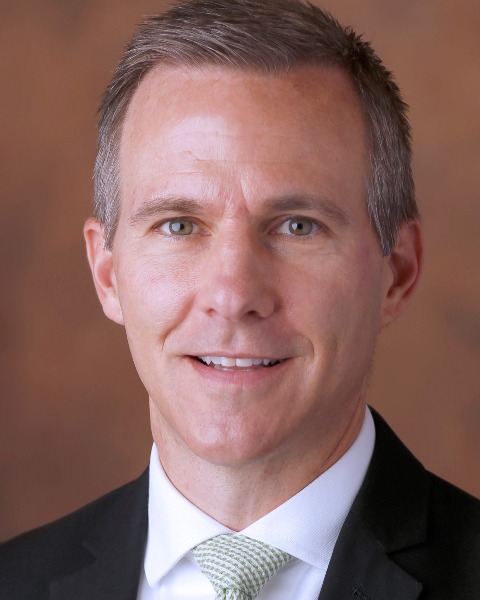
Eric Bymaster
Associate Vice Chancellor for Finance & Treasurer
Vanderbilt University
Eric Bymaster serves as the Associate Vice Chancellor for Finance and Treasurer at Vanderbilt University. Eric’s responsibilities include managing treasury, including cash, short-term investments, debt planning, banking relationships, and other treasury operations; financial planning and analysis, including developing the annual budget and the university’s capital plan; and supporting the chief business officers of the 10 academic schools, the Provost, Athletics, and the administrative support areas. Eric has served at Vanderbilt since 2016.
Prior to Vanderbilt Eric spent 15 years at Emory University in Atlanta, Georgia. His most recent position was Associate Vice President for Finance & Operations in the Division of Campus Life with financial, administrative, and operational responsibilities for housing, dining, bookstore, and university center operations, as well as financial, budgeting, human resources, and IT management for athletics, student affairs, student health, dean of students, career center, and the counseling center.
Before Emory Eric spent seven years at Purdue University and Purdue Research Foundation, in West Lafayette, Indiana in a variety of roles including managing commercial and residential real estate and serving as a business and contracting officer in the School of Engineering and School of Agriculture.
Eric received his bachelor’s degree in Business Management from Purdue University’s Krannert School of Management and a master’s degree in Higher Education Administration also from Purdue University.
Outside of work Eric enjoys distance running, real estate investing, boating, and being an uncle to eight nieces and nephews.
.
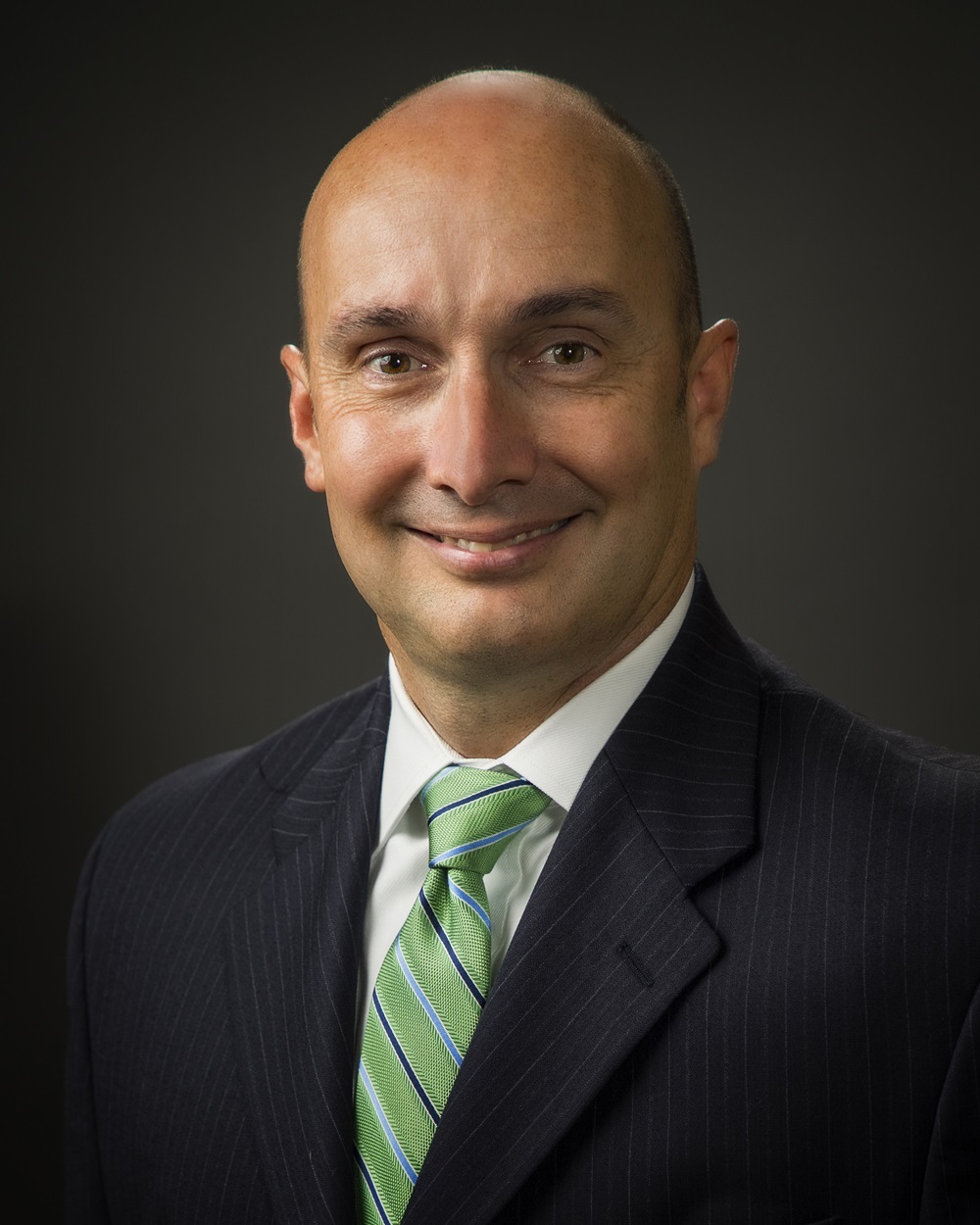
Christopher Calvert
VP Administration and Finance/CFO
Northern Kentucky University
Christopher Calvert is the CFO/vice president of administration and finance at Northern Kentucky University. Prior to assuming this role, he had a successful tenure as CFO of Cincinnati State. Calvert has degrees from Miami University (B.S. finance) and University of Cincinnati College of Law. Calvert's experience includes Big Four accounting firms (Arthur Anderson and Ernst & Young), deep financial planning and analytics expertise, and chief financial officer experience in progressively larger private organizations leading up to his appointments at Cincinnati State and Northern Kentucky. Under Calvert's fiscal leadership, Cincinnati State had its strongest single and five-year fiscal results (measured by net surplus, cash flow, and financial ratios) and completed a dramatic fiscal and enrollment turnaround. Calvert assumed leadership of administration and finance at Northern Kentucky University in Spring 2024 and is eager to build upon his successes at Cincinnati State and deliver similar results at NKU.
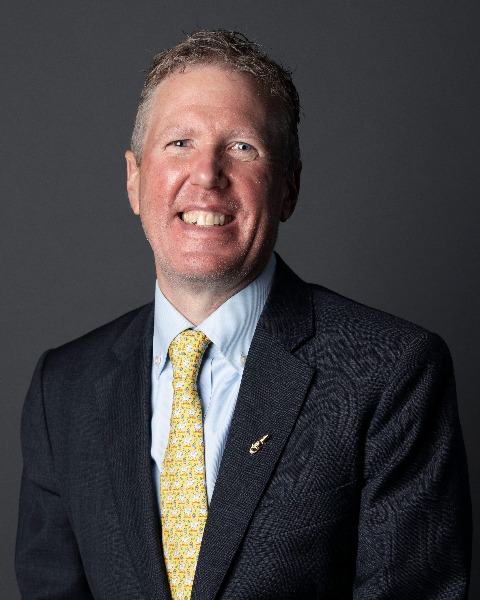
Christopher Cowen
Senior Vice President and Chief Financial Officer
University of Florida
As Senior Vice President and Chief Financial Officer, Mr. Cowen develops, evaluates and communicates short- and long-term fiscal strategies that align with established university goals. He provides financial oversight and financial planning for the entirety of the university’s portfolio of operations, which includes the university’s 16 direct support organizations. Mr. Cowen also serves as a member of the Board of Directors at UF Health.
Prior to joining the University of Florida, Mr. Cowen worked at Bank of America coordinating national coverage of higher education and not-for-profit clients. Prior to that, he spent four years as managing director and co-head of the higher education finance group for Goldman, Sachs & Co. From 1992 to 2010, he was managing director and head of the national higher education consulting practice for Prager, Sealy & Co., and from 1990 to 1992, he was a financial analyst for Merrill Lynch & Co.
Mr. Cowen earned a bachelor’s degree in economics from the Wharton School at the University of Pennsylvania and an MBA from the University of California, Berkeley, Haas School of Business.
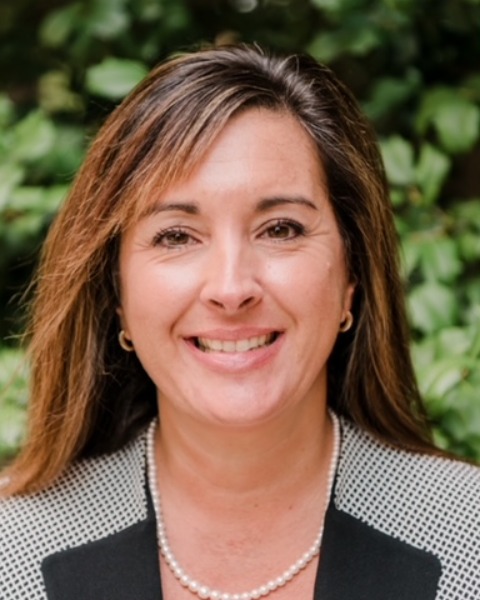
Kathy Dettloff
Vice President of Administration and Finance
University of Maryland, Baltimore County
Kathy L. Dettloff is the Vice President for Administration and Finance at the University of Maryland, Baltimore County. Ms. Dettloff leads the financial management and planning for the $500 million budget, and is responsible for all University Operations including facilities management, emergency operations and the University’s Police Department. Additionally, Ms. Dettloff is responsible for all Administrative Services and Human Resources functions. Ms. Dettloff serves on many committees across the University and serves as a liaison with University System of Maryland and State officials.
Prior to joining UMBC, Ms. Dettloff served as Vice President of Finance and Budget and Associate Treasurer at Rutgers, The State University of New Jersey. In this role, she was responsible for providing university-wide leadership and broad strategic oversight to the areas of the Controller’s Office, University Budget Office, Treasury, Risk Management and Insurance, and University Finance and Administration’s Shared Services.
Prior to her time at Rutgers, Ms. Dettloff was the Chief Budget Officer at the University of Delaware and held various positions of increasing responsibility at Johns Hopkins University, culminating in Budget Officer.
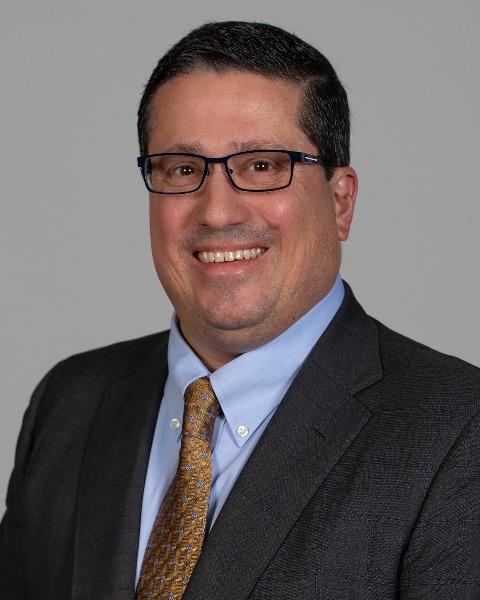
William Dracos, MBA
Deputy Chief Operating Officer
Georgia Tech Research Institute
William (Bill) Dracos serves as a Deputy Chief Operating Officer (DCOO) at the Georgia Tech Research Institute (GTRI). At GTRI, Bill helps lead and improve the Institute’s operations and support functions, with a focus on enhancing efficiency and effectiveness, financial management and improvement, capital planning, process improvement, logistics, facilities, and real estate.
Prior to joining GTRI, Bill served as the Vice President for Operations and Business Services at George Mason University (GMU). Bill led the university’s business services, operations, and auxiliary functions, which included overseeing multiple business function, such as dining, retail restaurants, parking, emergency management, Mason Police, EagleBank Arena, mail and package, managed print, real estate, student centers, the child development center, technology access and security, as well as related licensing & marketing efforts. He managed a portfolio of nearly $120M, encompassing 1,200+ university and contract staff. Bill also founded and served as the Managing Director of GMU’s internal consulting practice, University Business Consulting (UBC), which served to improve business operations and drive strategic projects across the university.
Prior to George Mason, Bill served as Chief Business Practice Improvement Officer and AVP for Administration at Emory University. He founded Emory’s Consulting and Business Practice Improvement (BPI) division, specializing in management consulting, planning, and analytical solutions to complex and ambiguous business challenges. Bill also oversaw Emory’s Business Services division, operating multiple service models, as well as launching new multimillion-dollar entrepreneurial businesses.
Prior to joining Emory, Bill was a Director with PricewaterhouseCoopers’ (PwC) Higher Education and Health Sciences management consulting practice, serving universities, research institutes, associations, consortia, and health systems.
Mr. Dracos holds an undergraduate degree in Biology from Duke University and an MBA with highest honors from the Fuqua School of Business at Duke University. He is a published author, as well as a conference presenter and a university lecturer.
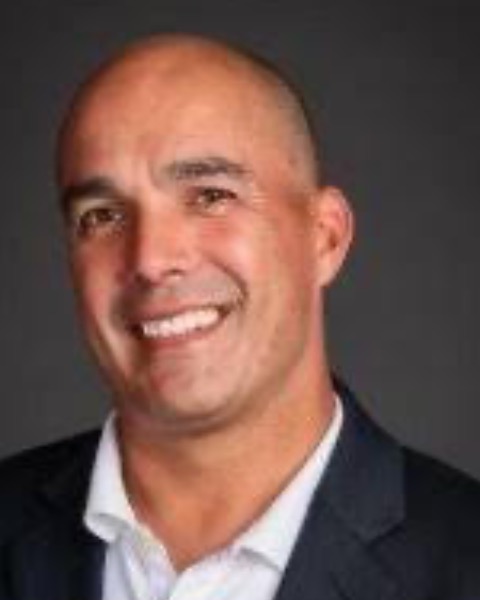
William Guerrero, MBA
VP of Finance and CFO
University of Bridgeport
Bill Guerrero has over 24 years of experience in educational administration with 21 of them in higher education. Currently he serves as the Vice President for Finance and CFO at the University of Bridgeport. Previously he has served as the CFO at numerous institutions such as Springfield College, Ithaca College, and Albertus Magnus College. His responsibilities have covered all areas of higher education operations including finance, accounting, budget, athletics, human resources, endowment management, facilities management, information technology, auxiliary enterprises, environmental sustainability, and risk management. He began his career in higher education as the Executive Director of the Purchase College Assocation, Inc at Purchase College, SUNY, where he managed the separate not-for-profit auxiliary service corp, where he grew revenue from $2.3M to over $23M during his 13-years in this roile. He also served as the President for the SUNY Auxilary Sewrvices Association (SASA) and the National Association for College Auxiliary Services (NACAS) East Region, as well as numerous other leadership capacities. He has presented in over 30 regional/national conferences with the primary goal to support institutional financial sustainability and student affordability and access. He has BA in Communications from the University of Connecticut, MBA in Finance & Entrepreneurship at Sacred Heart University, and finishing his DBA at Grand Canyon University preparing to defend his dissertation on research on ESG investments.
.jpg)
Russ Hannah
Chief Financial Officer
Arkansas State University
Russ Hannah is the chief financial officer at Arkansas State University. He’s worked at A-State for 32 years in various financial roles including treasurer, controller, assistant vice chancellor for finance, associate vice chancellor for business and finance, and senior associate vice chancellor for finance/associate chief financial officer before assuming his current position in July of 2021. Prior to coming to A-State, he worked for Arkansas Legislative Audit for 8 years.
Hannah holds undergraduate degrees in management and accounting, an MBA, a specialist in community college administration, and a doctorate in educational leadership, all from Arkansas State. He is a certified public accountant, a charted global management accountant, and a certified government financial manager and is a graduate of Harvard University’s Institute for Educational Management, the Institute for Higher Education Management at Vanderbilt University, and the College Business Management Institute at the University of Kentucky. He recently completed an executive certificate in public leadership from the Harvard Kennedy School.
He currently serves as Chair of the Board of Directors of NACUBO, is a past president of the Southern Association of College and University Business Officers (SACUBO), and a former chair of the NACUBO Accounting Principles Council.

Laura Hubbard, MBA
Vice President for Finance & Administration
University at Buffalo
As vice president for finance and administration at UB Laura Hubbard’s responsibilities include oversight of strategic financial planning and analysis of resource use and development. She provides leadership and oversight for UB resource planning, business services, internal audit, real estate, policy and internal controls, human resources, university police, parking and transportation, emergency management, sustainability, and facilities units.
With more than 30 years of experience in higher education administration, Hubbard has a track record of success in areas from budget and strategic planning to organizational transformation.
Prior to joining UB, Hubbard served as Associate Vice President for Budget and Finance at the University of Oregon. She previously served as director of capital planning and budget, assistant vice president for administration, and interim vice president for finance and administration at the University of Idaho. She also served as finance and administrative officer on both academic and administrative units, as well as director of facilities administrative services, at Washington State University.
She holds a bachelor’s degree in journalism and an MBA from the University of Idaho.
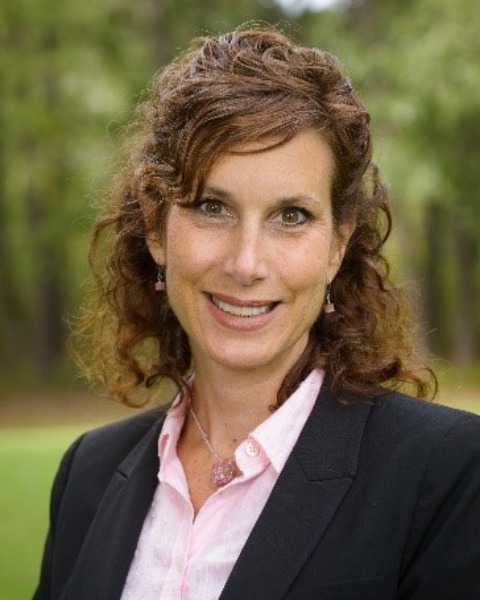
Leslie Jamison
Chief Financial Officer
Atlantic Cape Community College
Leslie Jamison is the chief financial officer (CFO) at Atlantic Cape Community College where she has worked for over 22 years. She is responsible for all areas of finance including audit, general ledger, payroll, bursar, financial aid, grants, accounting, and accounts payable. Jamison provides strategic leadership for the institution, including serving as the liaison to the board of trustees' budget, finance, and audit committee. She serves on a variety of college committees and helped guide the college's efforts during the global pandemic, providing leadership and administering the various COVID-19 relief grants for the institution and students. She participated in the most recent middle states accreditation team, serving as co-chair of verification of compliance and is a member of the New Jersey council of county college's business operations affinity group, serving as chair in FY21.
Jamison earned her bachelor’s of science in accounting from Clemson University and is a certified public accountant (CPA) in New Jersey. She successfully completed leadership training at the Chair Academy and participated in a Lean Six Sigma program.

Ed Kania
Vice President for Business and Finance and Treasurer
Rollins College
Ed Kania has held the position of Vice President of Business & Finance and Treasurer at Rollins College since June 2018. He served as the Vice President for Finance and Administration at Davidson College, Davidson, NC, from 2010 to 2018. Kania was Controller and Director of Business Services at Davidson from 1990 until 2010, as well as President of the Davidson College Development Corporation. Prior to Davidson, Kania was controller of an international, publicly held architectural firm after working for the audit practice of Coopers & Lybrand for 6 years.
A recipient of the 2019 Service to NACUBO Award, Ed is a presenter, teacher, and mentor though NACUBO and other professional organizations. A firm believer in community service, Kania is the Treasurer of the Mayflower Retirement Community board of directors in Winter Park, Florida, and is Chair of the board of the Private College 529 plan, a national prepaid tuition plan. Kania is originally from Philadelphia and received his B.S. in Accounting from Saint Joseph's University. He recently celebrated his 38th anniversary with his wife, Donna.
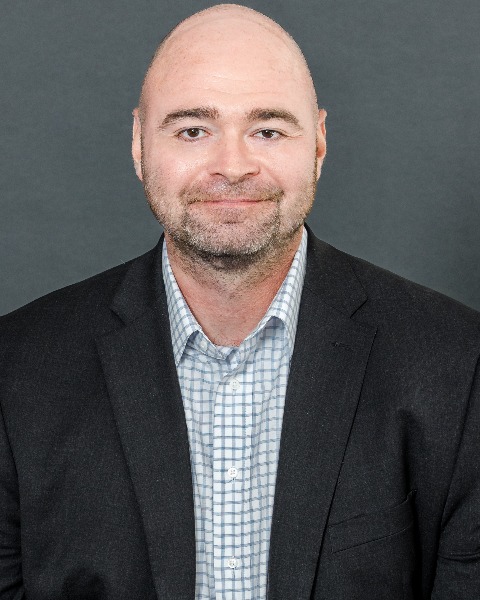
Joel Levenson
Assistant Vice President for Tax, Payables and Procurement
University of Central Florida
Joel Levenson is assistant vice president for tax, payables, and procurement at the University of Central Florida. He served as chair of the NACUBO Tax Council, member of the Inter-Institutional Committee on Finance and Accounting Officers (ICOFA), Tax Sub-Committee, and the University Tax Peer Group. He is also a former member and co-chair of the Internal Revenue Service Advisory Committee (IRSAC), a four-year appointment.
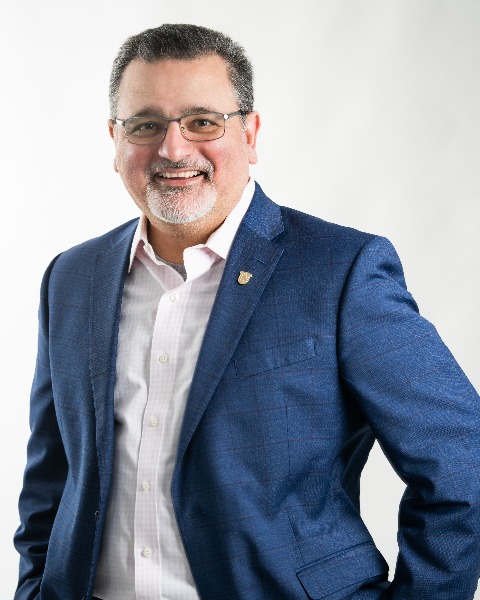
Melik Peter Khoury, DBA
President/CEO
Unity Environmental University
Dr. Melik Peter Khoury is the 11th President and CEO of Unity Environmental University (formerly Unity College) headquartered in New Gloucester, Maine. He holds a Doctorate in Business Administration (DBA), from the University of Phoenix, an MBA from the University of Maine Orono, and a Bachelor of Science in Business Management from the University of Maine at Fort Kent.
During his time as President, he has led efforts to transform Unity Environmental University into a sustainable, student centric institution of higher education by focusing on three core principles – affordability, accessibility, and flexibility. As a result, he has expanded its programs while growing its enrollment and national footprint exponentially.
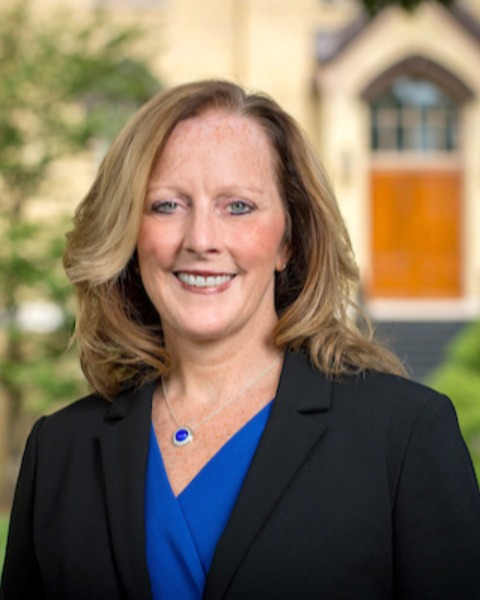
Linda Kroll
Associate Vice President for Finance
University of Notre Dame
Linda Kroll is a CPA and associate vice president for finance for the University of Notre Dame. In her current role, Kroll oversees the office of budget planning, the office of procurement services, financial operations of Notre Dame Global and the training, development and talent management programs for the finance division. This includes oversight of the budget planning and strategic sourcing activities for the university’s $1.9 billion operating budget including, multi-year budget development and analysis, financial modeling and forecasting, and monitoring the university’s annual spending and vendor relationships. It also includes partnership on financial oversight of Notre Dame International, which includes 5 global gateways, 6 international centers and multiple study abroad student locations. In addition, she also works collaboratively with finance division leadership in talent management, training, and development of finance employees. She has been at Notre Dame since 1998.
Prior to joining the university, Linda worked in public accounting for Crowe Horwath in South Bend, IN.
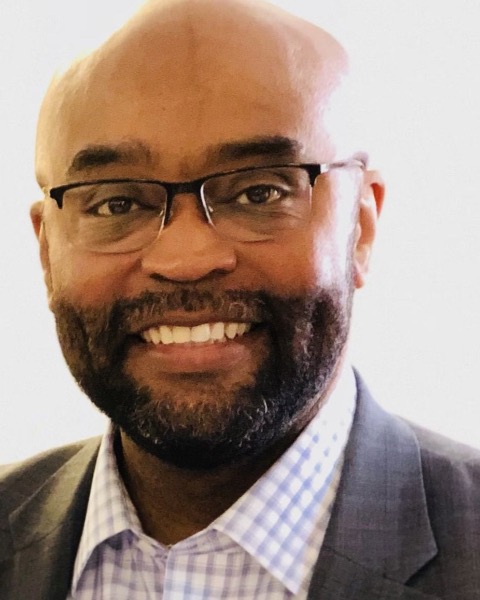
Dwayne Pinkney, PhD
Executive Vice President for Finance and Administration
Indiana University
Dwayne Pinkney is the Executive Vice President for Finance and Administration at Indiana University. He serves as a strategic advisor to the President, recommending financial and administrative objectives, policies, programs, and practices in support of a sound financial structure for the university. Working with the President and his senior leadership colleagues, Pinkney leads multiple teams responsible for long-range financial planning, budget planning, capital financing and investments, accounting and financial reporting, and procurement. Additionally, he oversees other university functions including public safety.
Prior to this role, he served at Virginia Tech as the Senior Vice President for Operations and Administration and at the University of North Carolina at Chapel Hill, where he served as chief financial officer and senior associate vice chancellor for finance and administration. His professional background also includes roles as an analyst with the North Carolina General Assembly and as the deputy secretary for administration with the North Carolina Department of the Secretary of State.

Wayne Magdziarz, MBA
Senior Vice President, Chief Financial Officer and Chief Business Officer
Loyola University Chicago
Wayne has served in multiple roles over the course of his more than 40 years at Loyola University Chicago. Prior to his current role he was the Senior Vice President of Capital Planning and Campus Management. Working for the real estate development and acquisition side of Loyola for nearly two decades, Wayne oversaw the construction and renovation of much of the university's current campus footprint with investments over $1.5B over 8 years. He is an alumnus of Loyola, having graduated with both a bachelor's degree and a master's in business administration.
.jpeg.jpg)
Amber Randolph
Senior Vice Chancellor for Administration and Economic Development and Chief Financial Officer
Rutgers University–Newark
As Senior Vice Chancellor for Administration and Economic Development and Chief Financial Officer, Amber Randolph serves as a leader and change agent for financial management and planning for Rutgers University-Newark, working collaboratively to develop and implement best practices and cultivating strong professionals throughout the organization, the City of Newark, and the surrounding community. She partners with the Chancellor on administrative leadership matters in addition to coordinating the activities of campus planning and facilities, real estate, information technology, EMS, university parking services, and business and budgetary matters.

Rebecca Skillings, MPA
Vice President for Finance & Administration
Oberlin College
Rebecca Vazquez-Skillings serves as the Vice President for Finance & Administration at Oberlin College with oversight for finance, business affairs, facilities, human resources, technology, risk management and institutional effectiveness. Over the past twenty plus years, she has had the privilege of serving in broad leadership roles in education policy, financial strategy, strategic planning, institutional operations, board leadership and management, and community-building. Her experience spans large State governmental organizations focused on macro-policy development; fiscal policy and program implementation; a complex multi-campus public research university; a regional small private university; and a selective private college. She is a creative values-driven leader focused on promotion and achievement of strategic institutional goals and mission. Alignment of financial stewardship with the promotion of values, including access, diversity, equity and environmental innovation, is an areas of particular focus. She is continuously driven to enhance institutional excellence, establish collaborative internal and external partnerships and support educational innovations that promote successful student outcomes and sustainability.
Rebecca values engagement in her community and profession and has served as a member of the Ohio Board of Education, member of various councils for NACUBO and TIAA, the Westerville Chamber of Commerce Board of Directors, as the treasurer for the Tuition Plan Consortium and other local organizations. She is a graduate of Kenyon College and the John Glenn School of Public Affairs at The Ohio State University.
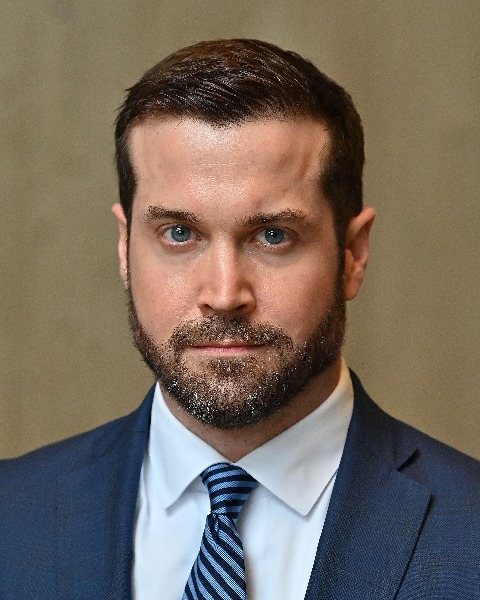
Drew Smith
Assistant Vice President & Treasurer
University of Michigan
Drew Smith is the Assistant Vice President & Treasurer at the University of Michigan. His major areas of oversight are Treasury and Risk Management with primary responsibility over banking relationships, merchant services and depository programs, cash and investment management, debt management, capital planning, the university’s ID card program, all risk management and claims activities, and management of the university’s captive insurance company.
Before joining the Treasurer’s Office, Smith served as the Deputy Chief Financial Officer and Head of Treasury for the City of Boston. In these roles, he supported the city’s Chief Financial Officer in overseeing the management of the city’s financial resources, including cash management, debt management, and revenue collection. He also directed the investment management, capital planning, and granting activities of the City of Boston’s multi-purpose testamentary and non-testamentary trusts.
Prior to working at the city of Boston, Smith served as the Deputy Assistant Treasurer for debt management at the Commonwealth of Massachusetts, where he helped manage $14 billion in financing transactions. He received his B.S. in business administration—with a major in finance and investment management—from the Sam M. Walton College of Business at the University of Arkansas in Fayetteville, AR.
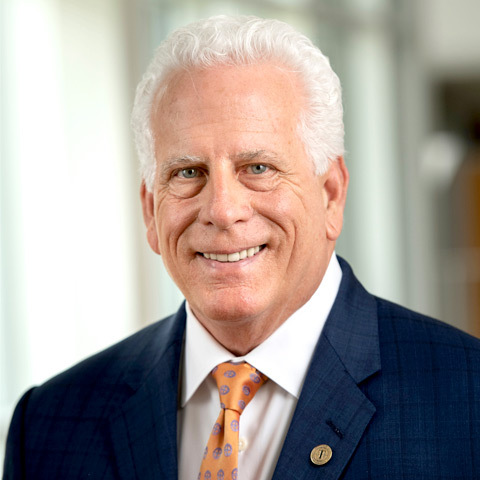
Arthur Snyder
Consultant
NACUBO
Arthur Snyder retired as president emeritus of the Indiana Institute of Technology. Under his leadership, Indiana Tech expanded academic offerings, added hybrid delivery systems, established 14 remote campuses, and had enrollment growth of over 400 percent. He implemented long range strategic and budget planning systems and increased fundraising success which resulted in an 800 percent increase in the endowment. Previously, he was the dean of the Tabor School of Business at Millikin University. Prior to joining academia, he had a 20+ year career in the telecommunications industry at AT&T, rising to the position of vice president.
Snyder earned an undergraduate degree from Barry University and went on to earn a master’s degree in business administration in strategic management. Snyder earned a doctor of education in innovation and leadership at Wilmington University.
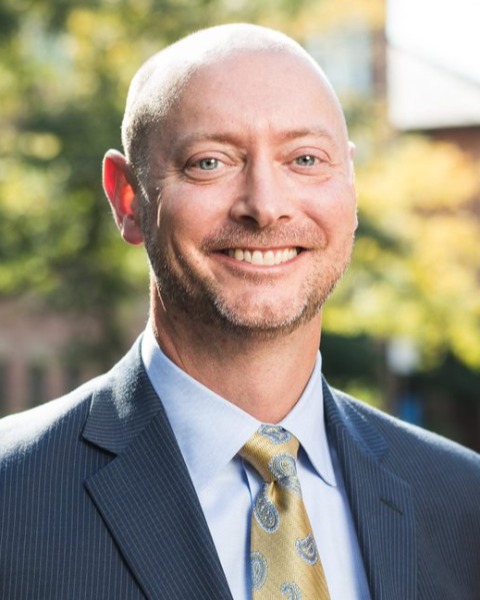
Scott Stenmark, MBA
Vice President for Finance & Administration / Chief Financial Officer
North Park University
Scott Stenmark has served North Park University as the Vice President for Finance & Administration & Chief Financial Officer for six and half years. In this position, Mr. Stenmark is responsible for Finance, Human Resources, Campus Safety, Risk Management, Auxiliary Services and Physical Plant activities at the University. Prior to joining North Park, Mr. Stenmark was the Chief Financial Officer for BMO Global Asset Management U.S.; Senior Manager of Financial Planning & Analysis for the U.S. Personal & Commercial segment of BMO Financial Group; Director of Financial Planning & Analysis at Belden Inc. and held numerous financial positions for Kraft Foods.
Mr. Stenmark serves on the Board of Directors of Covenant Trust Company, the Board of Trustees for Swedish Hospital, and serves as the Financial Secretary of his church, Naperville Evangelical Covenant Church.
Mr. Stenmark received his B.A. in Accounting from North Park University and his MBA from DePaul University.
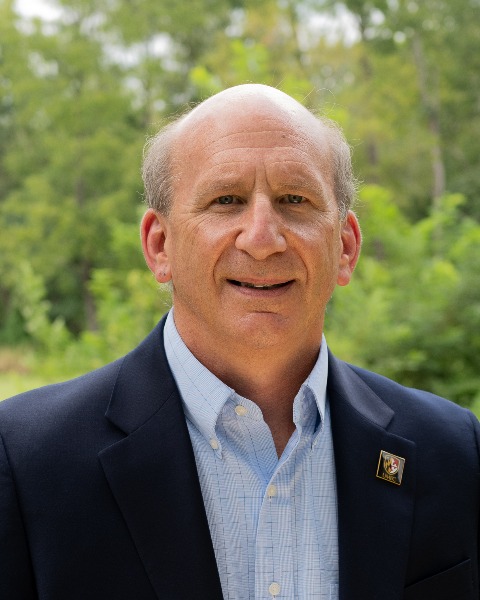
Jack Suess
Vice President of Information Technology and Chief Information Officer
University of Maryland Baltimore County (UMBC)
Mr. John "Jack" Suess is Vice President of Information Technology and Chief Information Officer (CIO) for the University of Maryland, Baltimore County (UMBC). He has led UMBC's IT organization for the last 26 years. Jack has led administrative projects in implementing ERP, developing and deploying analytics, and cybersecurity. At UMBC, he has been an active researcher in advanced networking and was PI on UMBC's 1997 NSF grant for vBNS networking and was the PI on a 2014 NSF cyber infrastructure grant to upgrade the network to 100 Gbits. In addition he has been co-PI on a NSF grant to increase women in IT through improved access to global resources and a state grant for broadening IT skills across all majors. He currently leads the Maryland Institute for Innovative Computing (MIIC) that works in partnership with the state of Maryland to advance cybersecurity practices and workforce development.
Nationally, he has served, or is presently serving, on the boards of Internet2, EDUCAUSE, IMSglobal, InCommon, REN-ISAC, and the NIST National Strategy for Trusted Identity in Cyberspace He has been a thought leader and researcher in the areas of advanced networks, cybersecurity, identity management, analytics, and the technology standards for learning technologies. His work has been recognized by Internet2 with the Presidential Award for Community Leadership and by EDUCAUSE for Leadership in the Profession. Currently, he is co-host on the EDUCAUSE podcast, The Integrative CIO.
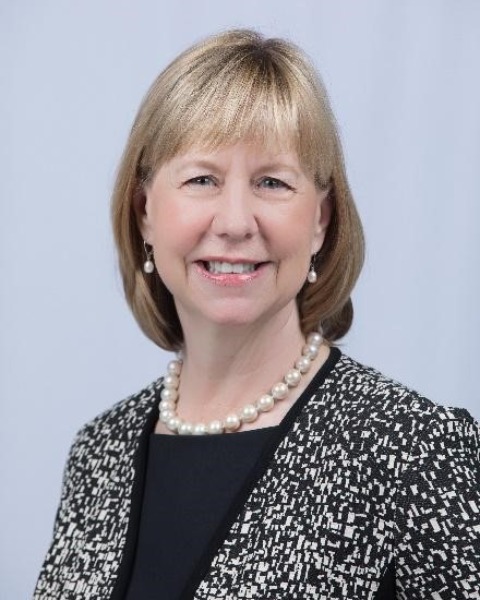
Jean Vock, CPA
Senior Vice President, Business Affairs | CFO
University of Nevada Las Vegas
Jean M. Vock has been the CFO / CBO for the University of Nevada Las Vegas since 2017. Her portoflio includes the controller’s office; procurement and contracts; financial planning, budget & analysis; administrative services; facilities management; planning, construction and real estate. Jean holds both bachelor’s and master’s degrees in Accounting, is a CPA and has been involved in higher education, nonprofit, and governmental accounting, technology and business administration for over 30 years. She is passionate about professional development, organizational excellence and innovation, and is committed to helping teams and institutions develop healthy, diverse cultures, organizational maturity and strategic growth.
Jean is actively involved in professional associations and served as President for the Western Association of College and University Business Officers (WACUBO) for the 2016-17 program year and as a member of the National Association of College and University Business Officers (NACUBO) board of directors from 2015-2018.
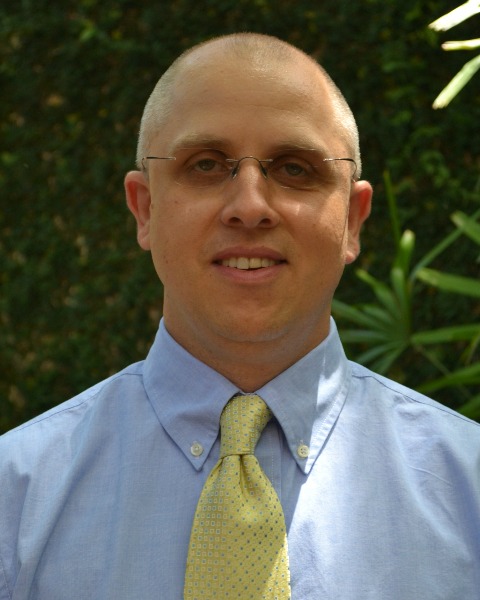
David Zajchowski, MBA
Director, Human Resources
Rollins College
David Zajchowski is the Director, Human Resources at Rollins College and an accomplished higher ed HR professional with more than two decades of experience. As a strategic partner with Rollins’ leadership, David helps develop and deliver innovative human resource programs and services designed to support the mission of the College. He is a collaborative leader who has proven expertise in talent acquisition, best-in-class HR service delivery, experience leading teams, facilitating creative problem-solving, and a trusted thought partner with key campus leaders and stakeholders. David has a passion and record of service to the human resources profession and to CUPA-HR. He is a frequent presenter at CUPA-HR events and previously served in various leadership roles including President of the CUPA-HR Florida State Chapter and Chair of the CUPA-HR Southern Region. In 2020, David was recognized by his peers with CUPA-HR Southern Region Distinguished Service Award. Recently, David served as a member of the Rollins College Diversity, Equity, Inclusion, and Belonging (DEIB) Strategic Steering Committee and co-led an institutional taskforce focused on hiring and retention practices for faculty and staff. David has a MBA from the Rollins College Crummer Graduate School of Business and is a lifelong learner. Let’s connect: https://www.linkedin.com/in/dzajchowski.

Andy Brantley, EdD
President and CEO
College and University Professional Association for Human Resources
Andy Brantley has served as CUPA-HR’s president and ceo since July 2005. The association includes almost 2,000 member institutions and over 34,000 representatives. The association has made diversity and inclusion a cornerstone of its work and strengthened its position as the source of higher education workforce data and the voice of higher education human resources professionals on Capitol Hill. Before coming to CUPA-HR, Andy worked for 17 years in campus leadership roles including associate vice president and chief human resources officer at the University of Georgia and director of human resources at Davidson College. In December 2021, he completed his Doctorate in Higher Education Management at UGA's McBee Institute of Higher Education. His dissertation focused on the reasons that chief academic officers choose to stay in or leave their positions. Andy serves as co-chair of the Washington Higher Education Secretariat steering committee and the Secretariat’s representative to the American Council on Education board.

E. Lander Medlin, MA
President & CEO
Organization
Lander Medlin is the President & CEO of APPA, “Leadership in Educational Facilities”, cultivating community and contribution that drive results. Representing more than 1,600 institutions of higher learning in the United States, Canada, and internationally, APPA serves the needs of facilities professionals in management, planning, and development of campus facilities and provides a strategic voice and leadership on significant educational facilities issues. Medlin served in significantly increasing roles at the University of Maryland, College Park, within the Department of Physical Plant, College of Public Affairs, Mathematical, Physical Sciences, and Engineering Division, and Physics and Astronomy. Medlin earned a bachelors and a masters degree from the University of Maryland, College Park, with additional work being completed for her doctorate in higher education policy, planning, and administration.

Mike Moss, CAE
President
Society for College and University Planning
Mike Moss, CAE, is the president of the Ann Arbor based Society for College and University Planning (SCUP). In collaboration with the Board of Directors, he is responsible for providing leadership and vision for the organization and guiding the development and implementation of the strategic plan, programs, policies, and practices of the society. SCUP develops individual and organizational planning capacities to strengthen and transform institutions of higher education. Integrated planning is a sustainable approach to planning that builds relationships, aligns the organization, and emphasizes preparedness for change. Integrated planning engages all sectors of the academy - academic affairs, student affairs, business and finance, campus planning, IT, communications, and development. It involves all stakeholders - faculty, students, staff, alumni, and external partners. Prior to SCUP, Mike served as chief operating officer for the International Facility Management Association and senior director of operations and education at NACE International. Mike's past positions have provided him with a broad range of experience, from organizational design and strategic planning through certification management and member relations.
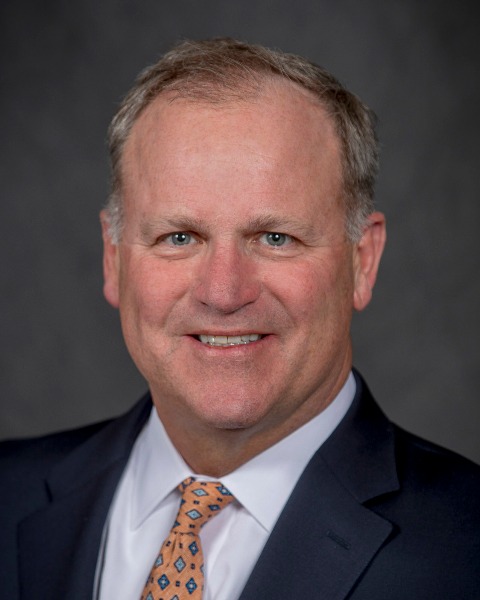
Henry Stoever, MBA
President and CEO
Association of Governing Boards of Universities and Colleges (AGB)
Henry Stoever is the President and CEO of the Association of Governing Boards of Universities and Colleges (AGB). He brings to AGB a deep understanding of the importance of strategic board governance and a wealth of experience building member-focused organizations. As AGB’s president & CEO, he oversees leadership and operations of the organization serving more than 1,300 governing boards, 40,000 individual trustees, 2,000 member institutions around the world. Henry champions AGB’s educational and advocacy work including AGB Search, a wholly owned private company of AGB.
In his prior role at the National Association of Corporate Directors, he oversaw board-development, marketing, and partner relations teams providing insights on issues shaping board agendas. Earlier in his career, Henry led marketing and communications teams as the Senior Vice President for StudentLoans.com, Vice President of Marketing for the CoStar Group, Senior Director of Industry Marketing at Nextel Communications (now Sprint Communications), Director of Marketing, Communications and Business Development at LexisNexis, and as a brand manager at Kraft Foods.
After graduating from the United States Naval Academy with a B.S. in economics, Henry served in the United States Marine Corps as an infantry officer. Subsequently, he earned an MBA from Northwestern University’s Kellogg Graduate School of Management.
In addition to serving as a trustee for the United States Naval Academy Foundation’s Academic and Scholarship Programs, Henry is a board advisor for the United Arab Emirates University board of trustees. Further, Henry is a member of the board of directors for the Marine Corps Scholarship Foundation and for Cycurion, Inc. Earlier, he served on the board of Boulder Crest Retreat for Wounded Warriors and was a visiting professor at American University’s Kogod School of Business.

Robert Caret, PhD
Vice President of Executive Search
Greenwood Asher & Associates, LLC
Robert Caret is chancellor emeritus of the University System of Maryland (USM). He joined the USM as chancellor in July 2015, was officially inaugurated as its fourth chancellor in November 2015, and stepped down in January 2020. Dr. Caret’s extensive networks and deep understanding of the issues related to higher education make him an excellent advisor and resource to institutions hiring their next executive leader.
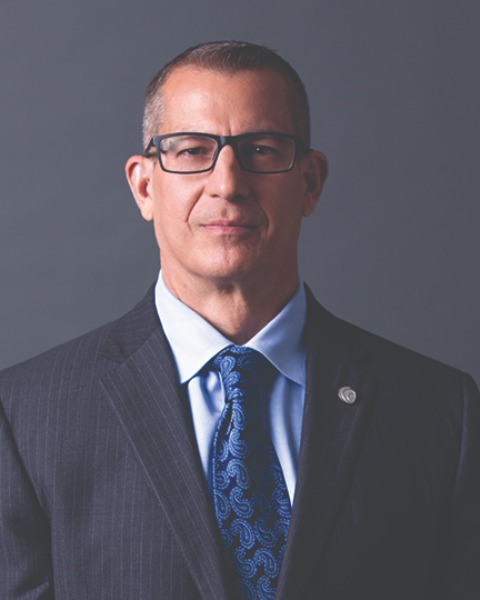
Dave Capitano
Higher Education Practice Leader
Baker Tilly
As Baker Tilly’s higher education practice leader, Dave Capitano, CPA, provides oversight to more than 200 team members serving over 400 public and private colleges, universities, research institutions and academic medical centers across the United States. Capitano has more than 30 years of experience working with college and university leadership and boards in a variety of strategic advisory and accounting areas. He takes a hands-on approach working collaboratively with institutional leadership to provide guidance and advice to be sustainable and resilient.
Capitano hosts Higher Ed Advisor, Baker Tilly’s biweekly higher education podcast, which discusses the latest news, trends and changes impacting colleges, universities, and research institutions. Additionally, Capitano co-leads the collegiate athletics and esports practice where he has the privilege of working directly with athletic directors, coaches, and student athletes to help them succeed on and off the field.

Cole Clark
Managing Director, Higher Education
Deloitte
Cole is a managing director in Deloitte Services LP’s Higher Education practice, and leads client and community outreach and relationships. He has more than 25 years global experience in education technology and six years of global higher education business application leadership at Oracle Corporation across the major functional areas of the academic enterprise, including student lifecycle, HR, and finance. Cole has been a trusted advisor in the higher education community and a leading voice around transformation, using modern technologies as enablers underneath broader strategies to increase efficiency and effectiveness as well as the development of new sources of revenue. In addition to the core business functions of the institution, Cole has experience in areas of the “front office” of higher education including research administration, student engagement, recruitment and retention, and student success.

Jim Costello
Managing Director
J.P. Morgan Securities LLC
Jim Costello is a Managing Director and head of J.P. Morgan’s Higher Education and Not-for-Profit Investment Banking Team. He has more than 30 years of experience working with public and private universities, research institutions, foundations and not-for-profits across the country. He joined J.P. Morgan in June 2012 and has completed a variety of transactions – tax-exempt and taxable bond issues, tender offers, asset securitizations, real estate financings and student housing transactions. Mr. Costello is a graduate of Dartmouth College.

Mark Hampton, PhD
Executive Education Advisor
Amazon Web Services
Mark Hampton serves as an Executive Education Advisor within the Higher Education practice at Amazon Web Services. Mark has 30 years of experience in Higher Education Administration, having served as Executve Vice President for Finance at both Brooklyn Law School and Washington College (Chestertown, MD), and in leadership roles in finance, budget, and institutional research at the University of Virginia, Virginia Commonwealth University, the State Council of Higher Education of Virginia (SCHEV), and the University of Utah. Mark holds a PhD in Educational Leadership and Policy from the University of Utah.
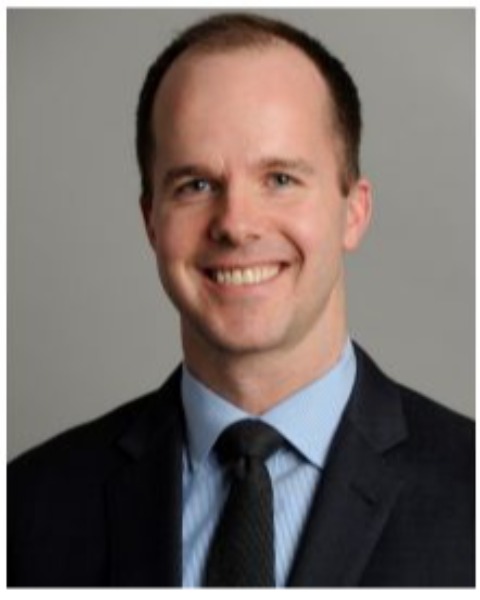
Michael Osborn
VP-Senior Credit Officer
Moody's Investors Service
Michael Osborn is a Vice President/Senior Credit Officer on the Higher Education and Not-for-Profit Ratings Team covering a diverse portfolio of organizations throughout the US for the last 10 years. Michael has authored various sector related publications, including the Higher Education Outlook and extensive research on the impact of cyber security in higher education. His higher education experience extends to time spent in banking and working directly for a small liberal arts college as the Senior Director of Admissions and Financial Aid. Michael holds an MBA from Fordham University and a BA in History from Michigan State University.
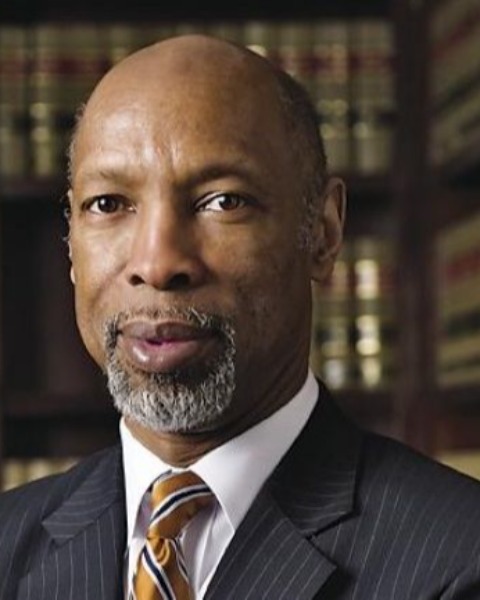
Michael Plater, PhD
Vice President and Higher Education Practice Lead
Kelly Education
With a distinguished career in both the academic and business realms, Dr. Michael Plater has made it his mission to partner with colleges and universities to overcome the workforce challenges that stand between them and provide students with the highest quality educational experiences.
Dr. Plater understands the operational struggles facing higher education firsthand. Having served as president of Strayer University, he confronted intensifying economic pressures and enrollment fluctuations by realigning his workforce, developing data-driven insights and new performance metrics, and initiating a geographic footprint reduction that restored profitability and positioned the enterprise for strategic growth.
Dr. Plater’s visionary leadership comes from a 30-year career as a university president, higher education administrator, and faculty member. His academic and administrative experience spans a wide range of higher education institutions, including the University of Florida, College of William and Mary, Brown University, North Carolina A&T State, and Strayer University.
He earned a Ph.D. in American Studies at the College of William and Mary; an MBA from the Wharton School, University of Pennsylvania; and a bachelor’s degree in economics from Harvard University.

Matt Unterman
Practice Leader and Principal, Higher Education and Not-for-Profit Advisory Services
Grant Thornton LLP
Matt Unterman is the leader of Grant Thornton’s Higher Education and Not-for-Profit Advisory Services Practice. In addition, Unterman leads Grant Thornton’s Higher Education Sector, overseeing our firm’s offerings and activities to colleges and universities. Unterman has served over 150 higher education institutions and not-for-profit organizations during his career at the firm.
Unterman received an MBA in strategy and finance from New York University’s Stern School of Business. He holds a bachelor's of arts in sociology from Haverford College.
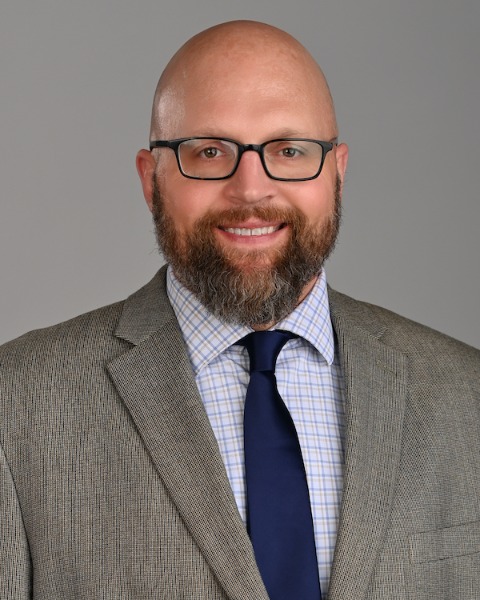
Jeremy Van Kley, EdD
Higher Education Sales Consultant
Kelly Education
Dr. Jeremy Van Kley comes to Kelly Education with over 13 years of experience in higher education leadership and management. Having served as an online and in-person faculty member, university administrator, and dean at a private liberal arts university in the Midwest, Dr. Van Kley brings this experience to his conversations with colleges and universities seeking workforce solutions. He is a systems thinker and a seasoned public speaker with years of experience teaching and presenting to large groups both online and in person. Dr. Van Kley holds a Bachelor of Arts in English, a Master’s in Divinity, and a Doctorate in Higher Education Leadership and Management. He and his wife have three children, ages 23, 20, and 18, and reside in Bourbonnais, Illinois. Together they enjoy history, art, music, outdoor activities, and the endless culinary opportunities that come with their close proximity to Chicago.

Pete Zuraw, BA/BS
Vice President Market Strategy and Development
Gordian
Pete Zuraw serves as the Vice President of Market Strategy and Development for Gordian. Pete Leads his team to improve customer understanding and strengthen the connection between Gordian's service offerings and the needs of its members. He also focuses on efforts to reinforce the company position as the voice of record for facilities issues in institutional market places. In previous roles, Pete gained facilities management and planning experience through guiding organizations serving higher education institutions, state agencies, and faith communities over 27 years. Pete earned a Bachelor of Science in civil engineering and a Bachelor of Arts in architecture, both from Lehigh University.

Jim Hundrieser
Former Vice President, Consulting and Business Development
NACUBO
Jim Hundrieser, Ph.D., is the inaugural and former vice president for consulting and business development at NACUBO. At NACUBO, he matched higher education institutions with new strategies to focus on growing revenue, building capacity, providing pragmatic solutions, conducting operational assessments, and increasing student success and completion. Hundrieser led NACUBO’s grant focused on strategically financing equitable student outcomes. Hundrieser had a 30+ year career in higher education, previously serving in leadership roles at the Association of Governing Boards of Universities and Colleges, Plymouth State University, Lynn University, and Marymount Manhattan College.

Chris Leach
Accounting Policy Analyst
NACUBO
Chris Leach is accounting policy analyst at NACUBO. Prior to that, he served for almost 20 years in associate vice president and controller positions at both Texas A&M University-San Antonio and Washburn University. Leach also has extensive experience in the private sector. He was assistant vice president for strategic planning and analysis at Security Benefit Group, a financial services company based in Topeka, KS. He began his professional career in the audit practice of Deloitte and Touche in Baton Rouge, LA. Chris left Deloitte in 1994 as an audit senior manager after time in the firm's national office and its Columbus, OH, office. Chris received both his bachelor’s and master’s degrees in professional accountancy from Mississippi State University. He has held certified public accountant (CPA) licenses in Mississippi (active), Louisiana (inactive), and Ohio (inactive). He and his wife, DeAnn, live in Columbus, MS, with their three dogs, two cats, and the occasional field mouse.

Sue Menditto
Senior Director, Accounting Policy
NACUBO
Sue Menditto is NACUBO’s expert on financial accounting and reporting, managerial analysis, and financial viability. She is charged with fulfilling higher education advocacy needs with the GASB, FASB, AICPA, and Department of Education. She was appointed to the IPEDS Finance Survey Workgroup in August 2023 as one of its financial reporting experts. She has also represented higher education on the Governmental Accounting Standards Advisory Council (2006–2012), AICPA’s Revenue Recognition Task Force (2016–2017), and the Department of Education’s financial responsibility subcommittee (2017–2018).
Menditto informs the association’s research efforts on accounting issues, endowment management, and tuition discounting; writes member communications: news, advisories, accounting tutorials, and articles; and supports members’ professional development needs by providing subject matter guidance. She has also co-authored chapters of publications addressing accounting, public health, and analytics and regularly speaks on accounting and financial management topics at conferences.
Menditto began her career in public accounting, was a CFO and Controller for a not-for-profit organization, and a vice president for Bank of America where she specialized in change management and accounting policy. She holds degrees in psychology and accounting and is a certified public accountant.

Kelli S. Rainey
Senior Director, Grants Management
NACUBO
Kelli S. Rainey, Ed.D., serves as the senior director for grants management at NACUBO. In her current role, she is leading a multi-foundation, multi-campus project to develop frameworks, tools, and models that will change how higher education institutions strategically and sustainably finance equitable student outcomes. With more than two decades in higher education, Rainey has an extensive background in institutional effectiveness, data analytics, and student development. Most recently, she provided strategic leadership as a senior-level university administrator and focused on strategies and initiatives to support student retention and completion, service delivery, and organizational effectiveness. Rainey holds a doctorate in higher education and organizational change and a graduate certificate in institutional research.


